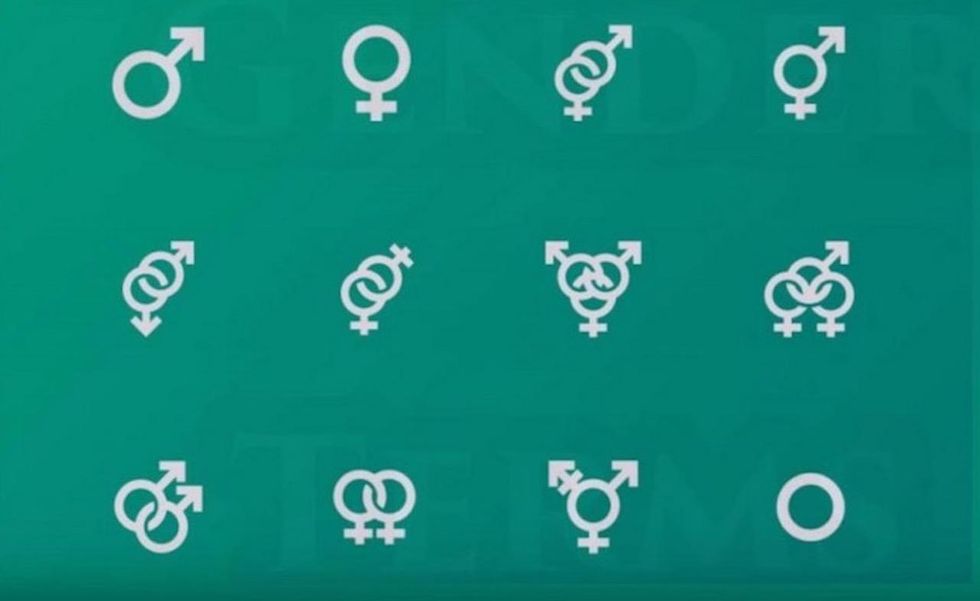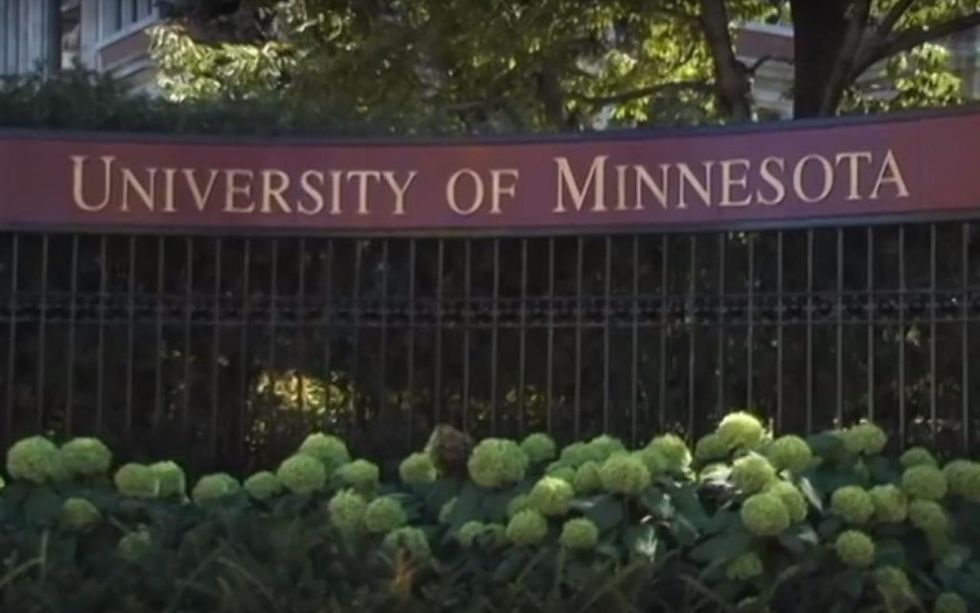
Addressing someone with an incorrect pronoun could get you fired or expelled from the University of Minnesota, according to the draft of a new gender identity policy, the Star-Tribune reported. (Image source: YouTube screenshot)

Addressing someone with an incorrect pronoun could get you fired or expelled from the University of Minnesota, according to the draft of a new gender identity policy, the Star-Tribune reported.
The college is considering allowing transgender men and women — and others —to use whatever pronouns they desire on campus, the paper said, adding that everyone from professors to classmates would be required to use such folks' chosen pronouns or risk disciplinary action, which could include firing or expulsion.

Advocates of the draft policy declare it would bar harassment and discrimination against transgender and “gender nonconforming” individuals, the Star-Tribune said, adding that it would also curtail "misgendering" — i.e., calling someone by a name or pronoun that person no longer uses.
Already University of Minnesota students can choose from a list of personal pronouns and gender identities on the school's website, the paper said.
For personal pronouns, the choices are:
As for gender identity, you can check off:
Joseph Konstan, a computer science professor and chair of the Faculty Consultative Committee, told the Star-Tribune tan early draft “just set off the free speech alarms immediately” on campus.
“I don’t think it’s a controversial idea that people should be addressed as they prefer to be addressed,” he added to the paper. “Where it becomes controversial is where you move from being about good behavior … into a disciplinary matter.”
The policy draft also lets individuals access men’s or women’s locker rooms and housing based on their self-identified genders instead of what ye olde biology dictates, the Star-Tribune noted.
"Do we allow a student to say we won’t room with somebody who was born with a different gender?” Konstan asked the paper.
University officials told the Star-Tribune that policy is still a work in progress and likely will be revised prior to approval.
“The intent is to be able to create more access and an inclusive environment for all of our community members regardless of their gender identity,” Gabrielle Mead, assistant director of the school's Equal Opportunity and Affirmative Action office — which will oversee the policy — told the paper.
Mead added to the Star-Tribune that she isn't ready "to talk about the specifics of what would be permitted and not at this stage" since the policy is still in draft form.
“I’m proud of the university for taking steps like this,” Melissa Harl Sellew — a professor who underwent a gender transition in 2016 — told the paper. “It’s a good step in the direction of just normalizing someone like me.”
Sellew added to the Star-Tribune that correct pronoun use can be a big deal: “I have friends who really want me to refer to them as ‘they’ because they don’t strongly feel male or female. They tell you it’s really affirming when you’re called by the correct pronouns, and it’s really saddening when you’re not.”
Ahmad Qais Munhazim, a graduate student who helped draft the new policy, told the paper it will help educate misgendering culprits get pronouns right.
“We are literally requesting of people to be respectful of people’s very basic identities,” Munhazim — who previously led the school's Gender and Sexuality Center for Queer and Trans Life — added to the Star-Tribune. “When you introduce any change in the language, there’s always a pushback at the very beginning until they get used to it.”
Jessica Schalz, a campus advocate, told the paper that transgender students often lack “leveraging power” to challenge professors who call them by their old names or pronouns: “So I am absolutely thrilled to see this as an administrative policy. This [is] something we can take back and show our professors.”
Jane Kirtley, a professor of media ethics and law, told the Star-Tribune the draft policy is a slippery slope: “Suppose you slip up and just accidentally use the wrong one. Is that harassment or discrimination? Does everybody get one free pass and after that, it’s harassment?”
Kirtley added to the paper, “I don’t have an issue calling a student by a name that she or he or ze prefers," but that viewing the draft "with a lawyer’s eyes, I am concerned … I frankly do not see how they could enforce something like this.”
Michael Geiger, a leader with Students for a Conservative Voice, told the Star-Tribune that "it’s a bridge too far to cross for a person to tell me I have to say something … and if I don’t, I can be punished. There’s a difference between creating a healthy environment and trying to legislate insensitivity out of the U.”
Sellew told the paper she doubts a pronoun faux pas "the first time" would result in a firing — but "maybe the 40th time, if you’re doing it loudly and publicly and brazenly, you might get in trouble. I hope so.”
Mead wouldn't detail to the Star-Tribune what might trigger disciplinary action against a student or employee, noting that it would “really depend on the circumstances.”
The school plans to seek additional feedback this fall, including a 30-day public comment period, before any policy is approved, Mead told the paper.
“We want to make sure that we are getting all of those different perspectives,” she added to the Star-Tribune. “We’re not going to push it through if we still have some big issues to work through.”